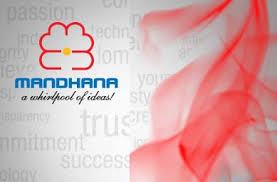![]()
Source:Moneylife Digital Team:April 26, 2010 02:36 PM
The country is now the seventh largest member in terms of voting power, with the United States leading the table with 15.85%, Japan (6.84%), China (4.42%), Germany (4%), France (3.75%) and the United Kingdom (3.75%)
India saw its say in the World Bank increasing a bit after member nations approved a shift in voting rights, while China’s voice in the funding agency grew louder than that of Germany, France and the UK.
Both India and China has enjoyed an identical 2.77% voting rights. While India’s voting power stands increased to 2.91%, China leaped to 4.42%—placing it third overall.
India is now the seventh largest member in terms of voting power, with the United States leading the table with 15.85%, Japan (6.84%), China (4.42%), Germany (4%), France (3.75%) and the United Kingdom (3.75%).
Membership of the financial institution gives certain voting rights that are the same for all countries, but additional votes are granted depending on a country’s financial contributions to the organisation.
Since 2008, emerging economies have overall gained 4.59% in voting rights.
“The change in voting power helps us better reflect the realities of a new multi-polar global economy where developing countries are now key global players,” said World Bank president Robert B Zoellick.
The member-nations also agreed to raise more funds for global aid at the annual spring meeting of the World Bank and the International Monetary Fund (IMF).
The change gives emerging nations more say in how the bank is run and how its funds are disbursed.
“This change in voting share, giving developing countries over 47%, is a significant step,” Mr Zoellick told reporters, hoping that shareholders will review the approach in 2015.
Mr Zoellick said that at a time when multilateral agreements between developed and developing countries have proved elusive, this accord is all the more significant.
This increase fulfils the Development Committee commitment in Istanbul in October 2009 to generate a significant increase of at least 3 percentage points in Developing and Transition Countries’ (DTCs) voting power.
“We, in calculating this, looked at the size of the world economy, using purchasing power but also exchange rate measures, but also, as a development institution, the contribution to development including the contribution to IDA, our fund for the poorest, the World Bank head said.
The governments also approved over $90 billion in extra money for the World Bank’s various arms that provide aid and capital to member countries.
Mr Zoellick said that the shift in voting powers was designed to try to reflect past contributions, citing the example of Japan that has been “a very gracious contributor” and to encourage new ones, including developing and transition countries.
The 186 countries that own the World Bank Group also endorsed boosting its capital by more than $86 billion for the International Bank for Reconstruction and Development (IBRD), the arm that lends to developing countries.
The increase would come from a general capital increase and a selective capital increase linked to the change in voting powers, including $5.10 billion in paid-in capital.
It further agreed on a $200-million increase in the capital of the International Finance Corporation (IFC), the World Bank Group’s private sector arm, as part of an increase in shares for developing and transition countries.
IFC will also, subject to board approval, consider raising additional capital through issuing a hybrid bond to shareholding countries and through retaining earnings.
The IBRD 2010 realignment will result from a selective capital increase of $27.80 billion, including paid-in capital of $1.60 billion.
Noting that this represents a dynamic transformation for the World Bank Group, Mr Zoellick said that the additional capital means that the bank will no longer face the possibility that it would have to cut back its lending later this year.
“We came into this crisis well-capitalised, thanks to sound financial policies. We have provided a record $105 billion in financial support since the crisis began to bite in July of 2008. This additional capital means that we will be able to continue to play the role that is demanded of us,” he said.



